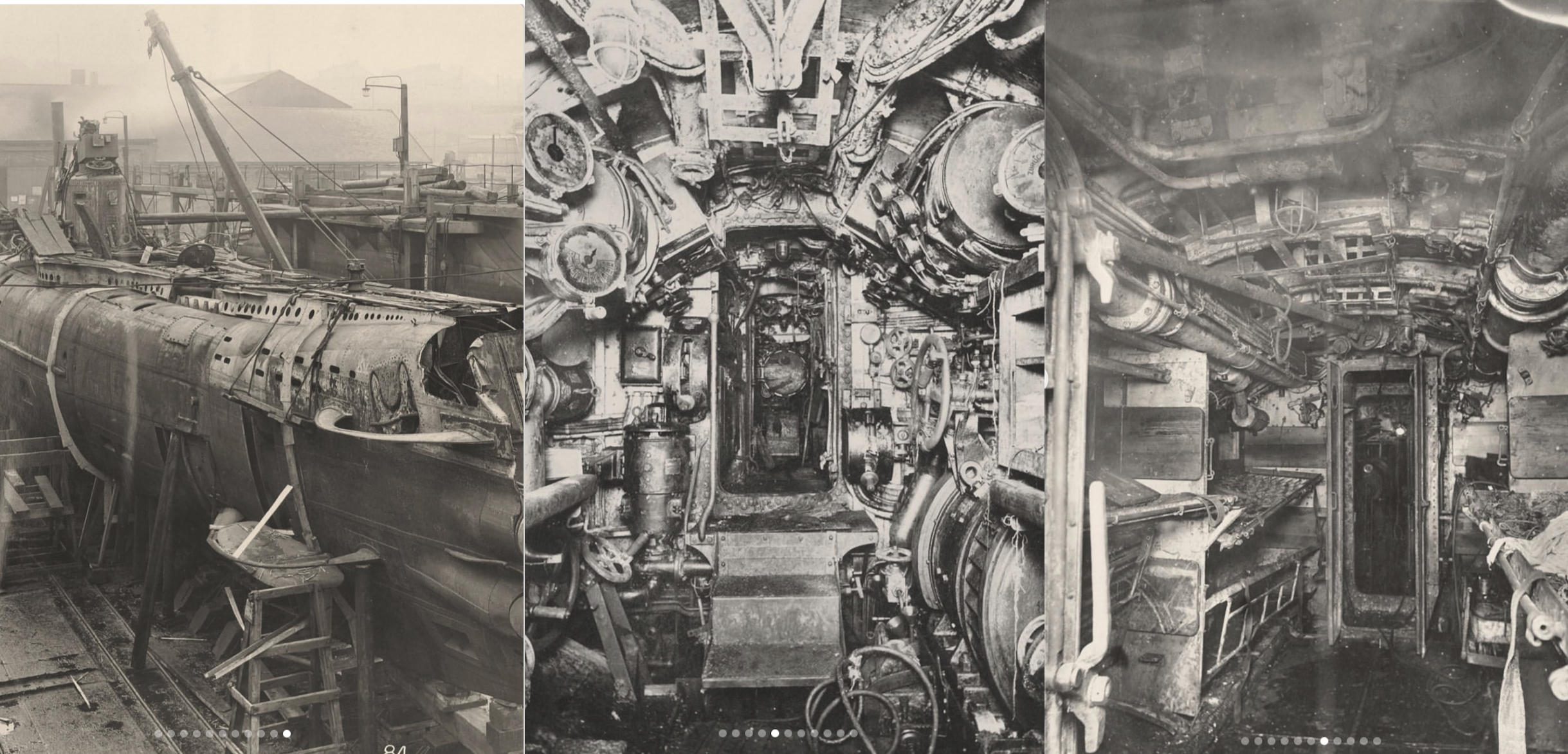1918 German Submarine UB110

During the early phase of World War I, Germany had a small submarine fleet—only 28 U-boats in 1914. But by 1917, that number had ballooned to 140, as submarines became a key strategy to combat Britain’s naval blockade. The blockade had effectively choked off Germany’s access to essential resources like food and fuel, pushing the country into crisis as the war dragged on.
To fight back, Germany used U-boats to strike at merchant vessels supplying Britain, hoping to starve the nation into surrender.
These attacks weren’t limited to military targets—they hit both Allied and neutral ships suspected of carrying cargo to the UK.
One of the most notorious incidents was the 1915 sinking of the Lusitania, which killed about 1,200 people and caused global outrage.
By war’s end, German subs had destroyed over 6,000 ships and nearly 12 million tons of cargo—wiping out more than 30% of the world’s shipping. Still, the campaign fell short of forcing a British collapse.
The German sub UB-110, a smaller-class U-boat, was sunk by a British vessel in July 1918. Though it was later salvaged with intentions to repurpose it for the Royal Navy, the war ended before those plans materialized. The submarine was eventually scrapped. Only 9 of its 34 crew members survived.
